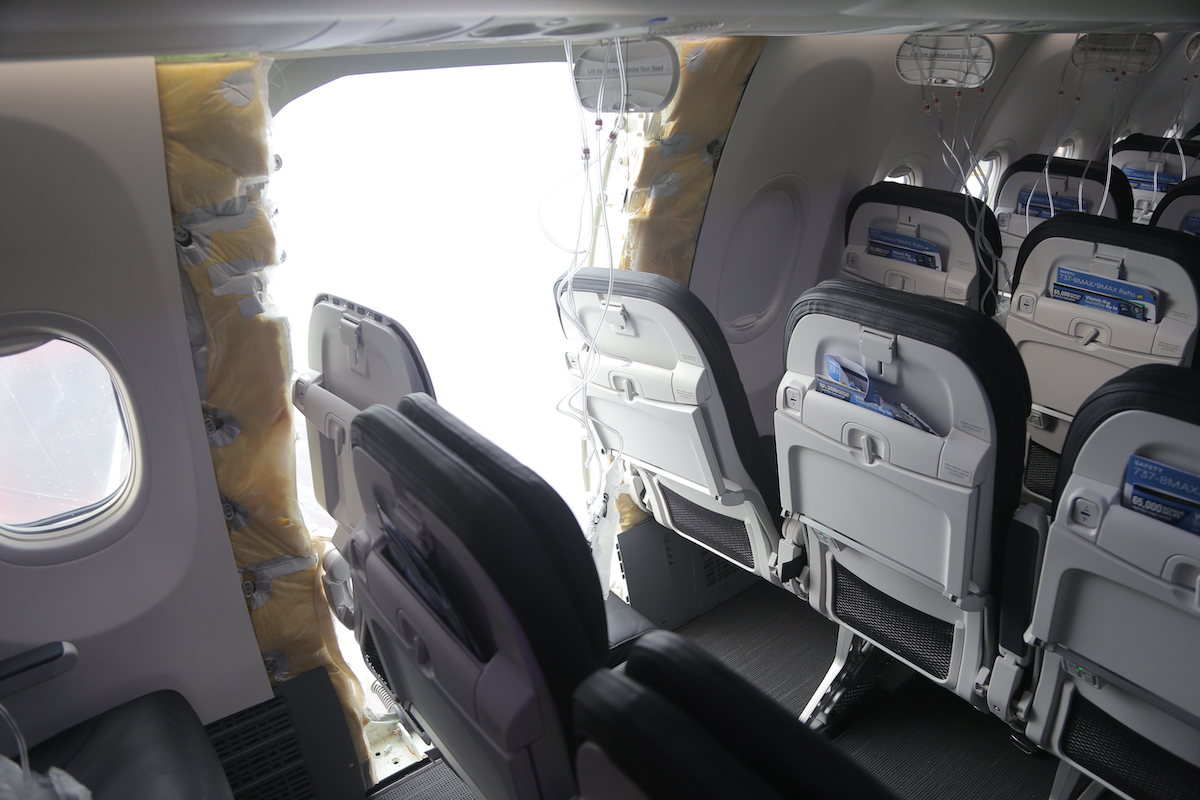Alaska and United May See Little Financial Hit from 737 Max 9 Grounding

Skift Take
Alaska Airlines and United Airlines may face little more than the cost of a "severe weather event" from the temporary grounding of most Boeing 737-9s, a second-largest model in the 737 Max family, following an accident aboard an Alaska aircraft on Friday.
Raymond James analyst Savanthi Syth estimated Sunday that the cost of flight cancellations and passenger disruptions due to the suspension could be akin to a major snowstorm or hurricane that forces the cancellation of hundreds of flights over several days. Her estimate is based on the widely-held expectation that the Federal Aviation Administration will clarify what airlines need to inspect on 737-9s by the middle of the week, which would allow planes to begin returning to service.
Alaska cancelled roughly 160 flights on Saturday and 170 flights on Sunday as a result of the suspension. United cancelled 90 flights on Saturday and 180 on Sunday. Both airlines expect cancellations to continue through the middle of the week.
Alaska and United are the largest operators of the 737-9 with 65 and 79 aircraft, respectively. Other global operators include Aeromexico, Copa Airlines, FlyDubai, and Icelandair.
The FAA grounded most 737-9s on Saturday pending inspections of what is known as a "mid-cabin door plug." Planes that do not have a door plug, including those at FlyDubai and Icelandair, are unaffected.
Boeing on Monday provided airlines with critical information on how to inspect the planes to return them to service, Reuters reported.
The temporary grounding followed the sudden decompression and loss of the plug on an Alaska 737-9 operating flight AS1282 from Portland, Oregon, to Ontario, California, on Friday. The aircraft returned to Portland where all 171 passengers and six crew members deplaned. The plane involved in the accident, registration N704AL, was delivered new to Alaska on October 31.
Boeing Fallout
The accident is the latest blow the beleaguered 737 Max. The plane was grounded for nearly two years until November 2020 following two fatal crashes in Ethiopia and Indonesia. Boeing has since racked up hundreds of orders for the Max, which is the only significant competitor to Airbus' popular A320neo family of aircraft.
"We do see the latest incident as eroding the fragile confidence that has been built around the 737 Max franchise," wrote Bank of America analyst Ronald Epstein on Monday. "That said, at this point in time, due to the duopoly nature of the industry, we do not see this impacting orders for any of the 737 Max variants."
The 737-9 is the least popular Max variant with just 76 outstanding orders plus 215 planes already delivered to airlines, according to Cirium Fleets Analyzer. The 737-8 is the most popular with 1,176 aircraft in service and at least another 1,971 on order. The yet-to-be-certified 737-7 has at least 333 orders and the -10 903 orders. Boeing has another 1,236 Max orders where the variant has yet to be determined.
Epstein added that, at this early stage in the NTSB's investigation, the cause "appears to be a manufacturing quality escape as opposed to a design issue. Door plugs are commonly used on commercial airframes.”
Boeing supplier Spirit AeroSystems manufactures the fuselage section and door plug in question on the 737-9.
Boeing shares opened down more than 8% at $228 on Monday, the first trading day since the accident.
January Benefit to Airlines
A silver lining for Alaska, United, and the other airlines affected by the FAA's grounding of most 737-9s is that it is January. The month is among the slowest of the year for travel demand in the Northern Hemisphere.
Helane Becker, an analyst at TD Cowen, noted on Monday that airlines also benefit from an extra day in February owing to Leap Year, and the shift of the Easter holiday into March from April. Both are boosts to airlines' first-quarter financial results.
Becker expects airlines to have an estimate on the cost of the grounding by the time they report fourth-quarter results later in January.
Spokespeople for Aeromexico, Alaska, and United both declined to comment on the cost of the 737-9 grounding.




